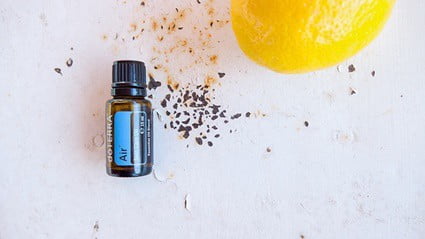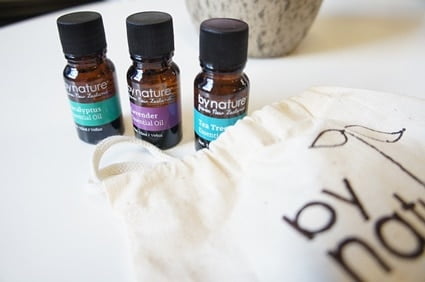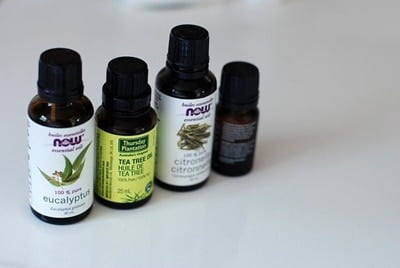This essential oil is used to treat a wide variety of medical conditions due to its antibacterial, antifungal, and antiparasitic properties. Unfortunately, rabbits are so sensitive to tea tree oil that it does more harm than good.
Tea tree oil is highly toxic to rabbits, and it takes only a small amount of this substance to induce toxicosis. Many owners mistakenly believe that this essential oil is good for getting rid of fleas or fungus on rabbits. Only when optimally diluted, and used in small quantities, does Melaleuca oil not pose a risk to rabbits. Home remedies for de-flea shampoos and ear mites can poison rabbits if not diluted correctly.
Vets do not recommend using home remedies with essential oils for use on rabbits. It takes only a small amount of oil to enter the bloodstream to result in the symptoms of toxicosis. Even oil diffusers in the home can cause tea tree oil poisoning, so never use them in the same room as your pet.
Can You Use Tea Tree Oil On Rabbits?
Melaleuca oil is distilled from the Australian plant Melaleuca alternifolia. It has many beneficial human applications, and has been adapted for a variety of uses in our daily lives.
Even when heavily diluted, it is not recommended to use tea tree oil on rabbits. It is a concentrated substance, and even a small amount can be dangerous. In severe cases, it can result in death. Rabbits can be exposed to tea tree oil via skin contact, inhalation, and ingestion.
Is Tea Tree Oil Safe for Rabbits?
Tea tree oil is unsafe for rabbits. In some cases, where the oil is diluted for use in shampoos or creams, it can be safe. This is only when diluted by commercial manufacturers that undertake extensive clinical testing.
Some owners seek out home remedies that use essential oils, like tea tree oil, in order to avoid harsh chemicals. Not all of these remedies are used on the rabbit directly, either, but for cleaning the home or killing off fungi. Even so, the rabbit can still be exposed to the toxicity of the oil.
You won’t know the exact concentration of the oil if you don’t get it from a reputable brand. Essential oils are not required to undergo the same rigorous safety and quality control testing as other types of pet products.

Tea Tree Oil for Ear Mites
Tea tree oil has antibacterial, antifungal, and antiparasitic properties, as noted by The American Journal of Tropical Medicine and Hygiene. For this reason, tea tree oil is widely used in human topical treatments for parasites, fungal infections, and antibacterial creams for wounds.
Given all of this good publicity, it isn’t surprising that many home remedy treatments for ear mites in rabbits suggest the use of tea tree oil.
Vets do not recommend using tea tree oil solutions to kill ear mites. While it may eradicate the mites, and also prevent ear infections from forming, the risk of tea tree oil toxicity is considered to be too great.
Essential oils can be absorbed through the skin and introduced into the bloodstream. Even if the rabbit doesn’t lick up the oil while grooming itself, it can still absorb a lethal amount through its skin. Vets recommend medicated treatments for removing ear mite infestations in rabbits.
Tea Tree Oil for Fleas on Rabbits
There are a number of pet shampoos that identify tea tree oil as an ingredient. One research source pointed out that the amount of oil used is often between 0.1% and 1%, making it safe for the majority of pets.
Tea tree oil can kill and repel fleas when the solution is strong enough. However, you should never make your own tea tree oil spray or wash. Companies ensure that the oils used are of the optimal concentration and are diluted evenly. We don’t have the equipment to do this correctly.
Home remedy flea solutions made with essential oils carry a risk, no matter how careful you are. It may absorb the oil through its skin if you don’t rinse it off thoroughly enough. Your rabbit may lick remnants of the tea tree oil solution from its fur during a post-bath or post-spritz de-flea treatment.
The strength of the tea tree oil solution required to kill fleas is also strong enough to make your rabbit very sick.
Treating Fungus with Tea Tree Oil
Topical tea tree oil shouldn’t be used to treat fungal infections, like ringworm and claw fungus.
Tea tree oil cleaning solutions may be used to wash down the hutch, enclosure, and toys to prevent reinfection. Diluted home remedies and commercial antifungal cleaning products are safe to use for any initial cleans if the rabbit is kept elsewhere for a few days.
Perform two deep sanitations to kill off the fungus. Once the second wash has dried, wipe everything down with the detergent you normally use to clean the enclosure. This will wash away any tea tree oil residue.
Do Rabbits Like Tea Tree Oil?
There is no evidence to suggest that rabbits like or dislike the smell of tea tree oil, but most animals aren’t that keen on the strong odor.
A rabbit may be curious when a new scent appears in its environment, of course. Ingesting or absorbing even a small amount of oil is enough to make a rabbit seriously ill.
What Essential Oils Are Bad for Rabbits?
Vets strongly advise against using any of these oils in home remedies for your rabbits. These oils include:
- Cinnamon Oil
- Citrus Oil
- Clove Oil
- Eucalyptus Oil
- Pennyroyal Oil
- Peppermint Oil
- Pine Oil
- Sweet Birch Oil
- Wintergreen Oil
- Ylang-Ylang Oil
It may seem odd that peppermint oil is on this list, as rabbits can safely eat the peppermint herb. However, essential oils are very concentrated substances that are derived from plants, making them volatile and unsafe for ingestion by rabbits.

Are Essential Oil Diffusers Safe To Use Around Rabbits?
You’d think that diffusing an essential oil would negate any harm. However, rabbits can still absorb and inhale oils that have been diffused. Essential oil diffusers aren’t safe to use around rabbits without taking precautions.
Particles of diffused oil can be inhaled and drawn into the lungs. Particles can also land upon the rabbit’s fur, food, or water dish, and thus can be ingested. Either way, the oil is introduced into the bloodstream, where toxicity begins to take hold.
Should you wish to use certain oils to place the diffuser in a room that the rabbit cannot access. The door to this room should also be kept shut, preventing contamination. Only use the diffuser infrequently.
Symptoms of Essential Oil Toxicity
In the event that you use essential oils in some form on your rabbit, or even just in your home, it is vital to know the symptoms of essential oil toxicity. Signs include:
- Tremors
- Excessive salivation or drooling
- Depression
- Lethargy
- Ataxia (a lack of control and coordination of the body)
- Paresis (weakness of the muscles and partial paralysis)
- Loss of consciousness
- Coma
The Journal of the American Veterinary Medical Association stated that clinical signs of toxicity develop within a 2-12 hour window of exposure to or ingestion of tea tree oil. They also note that 100% of the tea tree oil poisoning cases in this study had some level of toxicity.
Rabbits are more susceptible to essential oil toxicity and may have severe reactions to what seems like a safe dilution. Essential oil toxicity can be lethal. If you suspect that a rabbit has been poisoned, take it to the vet.


Hi Lou, my fluffy mini lop buck needs a lot of grooming and sheds a lot especially from his under coat.
I have noticed recently when brushing his coat, that he has been shedding small white dots like flakes of skin or maybe dandruff, although I have looked closely and there are no signs of mites, fleas or skin irritation.
Have you any ideas or advice about this and what might be causing it?